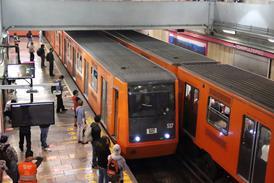Close menu
- Home
-
News
- Back to parent navigation item
- News
- Traction & Rolling Stock
- Passenger
- High Speed
- Freight
- Infrastructure
- Policy
- Technology
- Ticketing
- Business
- Research, Training & Skills
- Accessibility & inclusion
- People
- Urban rail news
- Suburban and commuter rail
- Metro
- Light rail and tram
- Monorail and peoplemover
- Regions
- InnoTrans
- In depth
- Events
- Data
- Maps
- Tenders & Jobs
- Sponsored content
- Insights
Railway opening forges ‘bonds of friendship’ between Afghanistan and Turkmenistan
By Railway Gazette International14 January 2021

AFGHANISTAN: ‘Those who thought that building a network of railways in Afghanistan was impossible need to reconsider their perspective’, said President Ashraf Ghani during the inauguration of the line from Aqina on the Turkmen border to the northern town of Andkhoy on January 14.
Already have an account? LOG IN
To continue…
You’ve reached your limit of content for the month
Get enhanced access to Railway Gazette news and weekly newsletters.
Site powered by Webvision Cloud














